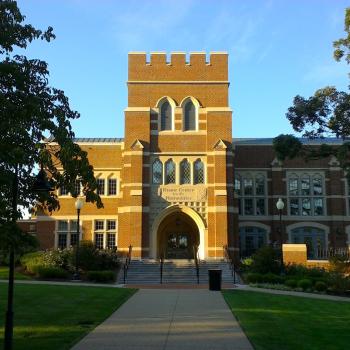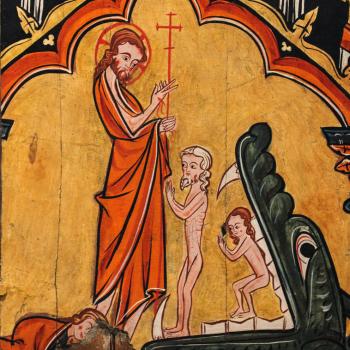
The popular image of a Christian dying, going to heaven, getting angel’s wings, and playing a harp for years on end makes the attraction of eternal life a mystery to many. Since most talk of heaven includes saccharine fantasies of pearly gates and streets of gold and haloes and angelic choirs, many cannot imagine why Christians make such a big deal about being saved and getting eternal life. There are, however, no scriptures to support the idea that people turn into angels or sing songs forever. While the idea shows up in comic strips, it has never been a part of Christian orthodoxy.
Biblical references to eternal life paint a different picture of what this might mean. The Gospels say that eternal life is the knowledge of the one true God and Jesus Christ (John 17.3). Christians teach that this knowledge is not one of facts or information, but of intimate relationship, a relationship of love given and received. Eternal life, then, refers primarily to a quality of life that can begin now rather than a quantity of years stretching into the future.
That said, the word “eternal” also denotes everlasting, which Christians have understood to be forever. Forever, however, is not “time without end,” because it implies something outside of time altogether. God is not bound by time, and those in relationship with him will therefore enjoy life outside of time. This necessitates both the extension of life after death and a transformation of the nature of our existence, and the Bible talks about both of these. Jesus told his disciples that those who believe in him will live, even though they die (John 11.25-26). Paul wrote that Christians will be with one another and with the Lord Jesus forever (1 Thessalonians 4.17), and that believers will be changed, vested with immortality (1 Corinthians 15.54). On the other hand, those who do not believe, who reject the relationship with God that is “eternal life,” will perish; they will experience the eternal death, or life without God, that they have chosen.
The Bible also describes an unspeakable happiness that comes with eternal life. Paul wrote that God has prepared something good beyond the imagination of humanity for those who love him (1 Corinthians 2.9). The last book of the Bible, Revelation, describes a scene from eternity that includes a new earth, a great city, feasting, and the eradication of suffering and grief and pain (Revelation 21). This passage draws on a much older vision of eternity from the prophet Isaiah that described vineyards and houses and gardens and harmony among all creatures (Isaiah 65.17-25). This eternity includes a new kind of creation and a new kind of body that can live in the presence of God (Revelation 21.3).
Eternal life, then, brings together concepts of a timeless and endless enjoyment of God, a reunion with other believers who have died, and a rich existence beyond what we can now understand or imagine. All of this is wrapped up in the concept of salvation, which you can read more about here.
3/23/2021 6:32:41 PM









